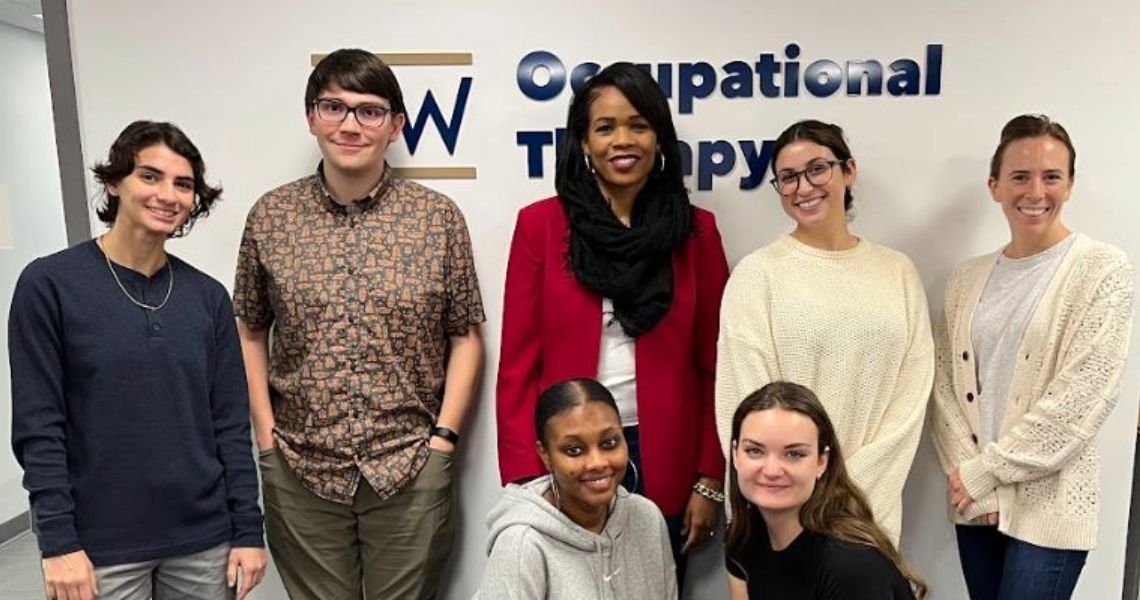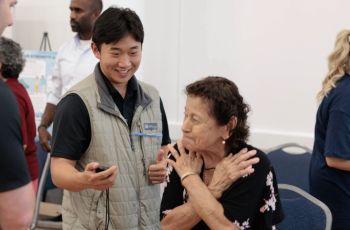Selena Washington, assistant professor at Saint Louis University in Missouri, delivered a special lecture titled, Inclusion on Purpose: Research and Transformative Learning in Occupational Therapy, to GW OTD students on September 28.
“It is very important, especially within our profession, to maintain a diverse and cultural lens when it comes to the care of our clients and our patients. It is also important to be intentional with others when addressing injustice, so that change can be sustainable and collaborative,” said Washington.
Doctoral students learned about Washington’s journey in OT and the various problems within research, diagnoses, and patient care. Students were then probed to reflect on the frameworks that guide how they learn and shape how they practice occupational therapy.
Washington shared her experience writing grants to seek funding for accessibility improvement efforts for elderly populations in low-income areas which resulted in the repair of 250 homes. “We go into these neighborhoods and say, ‘we know you take pride in your home, how can we help you with that? How can we help you with railing? How can we help you with lighting? How can we help you with… accessibility?’”
Reflecting on the lecturer's focus of language and inclusion with diverse populations, first-year OTD student Jack Kling said, “patients will be men, women, upper class, lower class, white, black, hispanic, and of various different backgrounds and cultures and so it’s important to have different OTs with different backgrounds and who speak different languages to be able to relate to their clients and see what exactly their occupation is and what their needs are.”
First-year OTD student Celia Accardi acknowledged the significance of research by saying, “it's really important to research diverse populations and it's helpful to break down those populations even further to find similarities between different types of populations to offer treatment.”
The GW OT program aims to deliver evidence-informed occupational therapy with a global reach, ensure inclusive engagement in society, and influence diversity in occupational therapy, which mirrors Selena Washington’s message for future practitioners.



